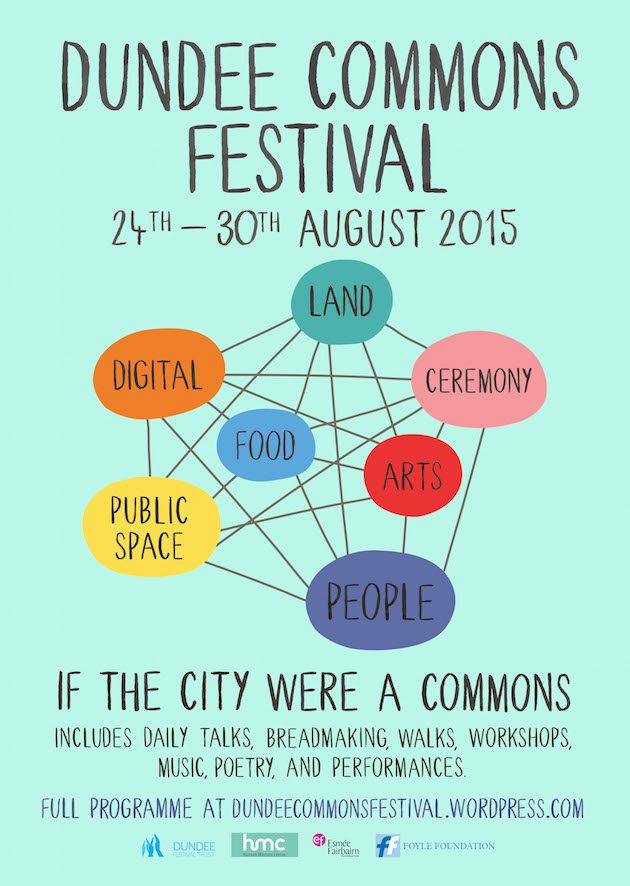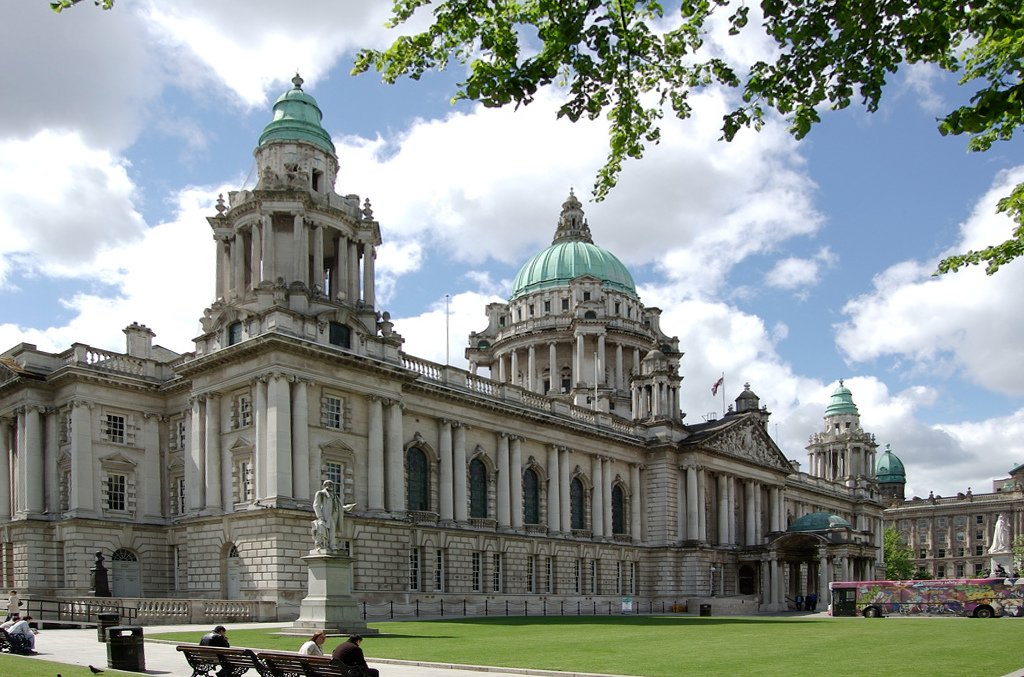“What would Belfast look like, sound like, feel like, taste like, if the city was a cultural commons?” asks the event description on the Imagine Festival’s website. It was this question that drew me to my first-ever Imagine Festival event, a so-called “conversational seminar” entitled “Imagining Belfast as a Cultural Commons,” hosted by Voluntary Arts Ireland and held at City Hall on Monday.
Between the plethora of events organized for this year’s self-described “Festival of Ideas & Politics” and the beautiful sunny weather we experienced on Monday, audience turnout for the event was unfortunately quite low. However, the event organizers turned what might have been a disappointment into a boon, scrapping PowerPoint, microphone, and speaker’s podium for an intimate discussion around a table over tea and coffee. This more democratic mode of discussion captured, for me, the spirit of the Imagine Festival, and that of the topic at hand.
So what is a cultural commons? Some of us in attendance, myself included, were unfamiliar with the idea. To start the conversation, Denis Stewart from Voluntary Arts Ireland, who facilitated the discussion, asked us what comes to mind when we hear the word “commons.” Many of us connected the term to the old English village model, with open spaces held collectively by residents. Words like “common ground,” “common law,” and “shared space” were brought up, as was the idea that the village commons was a place apart, a place for the community, and a place that was (or is) “ours.”
Jonathan Baxter, the artist behind last year’s Dundee Commons Festival, Skyped in to shed some light on the idea of, and possibilities for, cultural commons in the present day. He identified three key elements: a resource held in common, a community who hold that resource, and a plan for managing that resource. The resource can be anything, he told us: land, food, art, but especially, and most neglected among these, the people themselves. While the idea of a commons is in many ways antithetical to capitalism, both Jonathan and the discussion facilitators were quick to point out that the idea isn’t about replacing current systems of government and economics, but rather about posing alternatives that exist alongside those systems.

The discussion that emerged from the event perhaps raised more questions than answers. (Although certainly there did seem to be agreement that a festival is not the way forward for Belfast as it was for Dundee. As several people pointed out, Belfast already has its fair share of festivals.) But perhaps there is another way to identify and celebrate the city’s shared resources? This is what we asked ourselves, and went away continuing to ask ourselves.
Of course, this begs the question, What are Belfast’s shared resources? In a city that sees so much disagreement, at all levels of society, over what constitutes “culture,” this is not an easy question to answer. I am reminded, though, of something that Jonathan Baxter said of the Dundee Commons Festival: “Our primary resource is imagination.” For me, this is what the Imagine Festival is all about: the meeting of imaginations, and the chance to think creatively about the city’s present and future.
Kayla Rush is a PhD student at Queens studying Community Arts in Contemporary Northern Ireland. Originally from the US she now lives in Belfast. Find out more about her work…
This is a guest slot to give a platform for new writers either as a one off, or a prelude to becoming part of the regular Slugger team.
Discover more from Slugger O'Toole
Subscribe to get the latest posts to your email.
